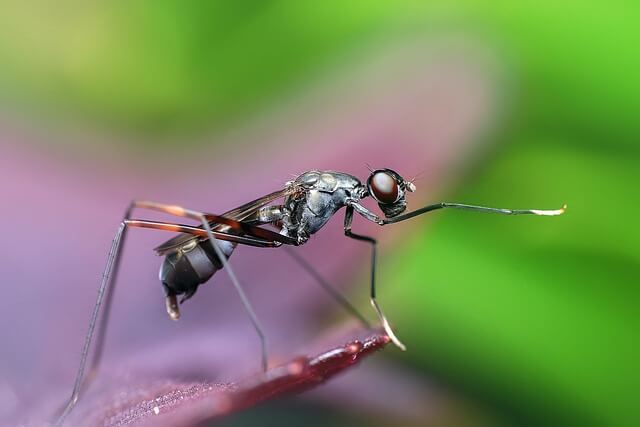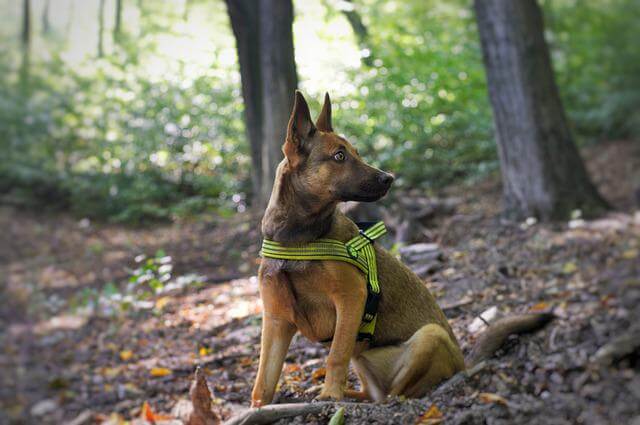Ant Bites On Dogs - How Dangerous Are They?
12.09.2022.
Pet parents are well aware of fleas and ticks and all the problems they can bring to their dogs, but often they don't realize that other bugs can also bring discomfort and pain to our beloved dogs. We firmly believe that you didn't realize that ant bites could cause a problem for your dog, but in reality, depending on the exact type, your dog could end up with some mild to life-threatening symptoms.
We all know that dogs are curious creatures and like to sniff around. While they do that, we must be able to recognize potential dangers and protect them. Ant bites in dogs can certainly cause some problems for your pooch, and we are here to teach you about all the potential dangers they bring, as well as what is the right treatment if ant bites occur. Let's start.
What are ant bites?
Ant bites will occur as a small, red area on the skin that can be extremely painful, depending on the ant type. Dogs are vulnerable to these bites on their whole body, but generally, their face is in the most danger because when they sniff, they tend to have their muzzle down near the ground.
Ant bites on the dog's face could be potentially problematic since they could cause problems with breathing. Depending on your dog's symptoms, your vet can tell you to bring your dog to the clinic.
Ant bites, however, can cause far more problems for your dog. They will inject a certain amount of venom after the contact; depending on your dog, reactions can vary. Some dogs could experience allergic reactions.

What are the known symptoms of ant bites in dogs?
Symptoms can vary depending on the ant type and the bite area. Some dogs could only experience some minor to no problems, while others can experience major problems.
Some of the symptoms of ant bites in dogs include:
- Red areas
- Swelling
- Problems with breathing
- Lameness
- Chewing affected area
- Whining
- Vomiting
- Collapsing
Depending on your dog's age, size, general health, and the location of the bite, symptoms can vary, and two dogs could exhibit different symptoms.
What are the dangerous types of ants?
The most dangerous ants you should be most concerned about are fire ants. They can be found in different areas, but most commonly, they are known to be in the Southwest and South areas of the country. This fire ant can do both – bite and sting your dog.
The biggest concern about fire ants is that they could attack your dog as a group. In this case, an ant bite could potentially be deadly for your dog. Make sure that you always protect your dog, so it won't happen that a group of fire ants attack your pooch.

What will be the treatment for my dog?
First thing you will have to do after you notice or suspect an ant bite is to check your dog to see if is there any ants left on his body. You must check areas that are hard to reach and be thorough with longhaired dog breeds. With these dogs, it could easily happen that you miss some ants on your dog's body.
After the bite occurs, you will have to watch for symptoms. Call your vet and say what happened. If your dog doesn't show any signs, your vet will most probably instruct your to watch over your dog and, in case of an anaphylactic reaction, to come to the clinic.
As we said earlier, depending on your dog, symptoms can vary, and treatment will also differ. If your dog shows milder symptoms, he could be prescribed medications and your vet could instruct you o clean the bite area, while with severe symptoms, your dog could end up in the clinic for supportive care.
Is there a way to prevent ant bites?
As with anything, prevention is the best treatment for your dog. If you live in areas where colonies of ants can be found, you must be careful during your daily walks. Always watch your dog, and don't allow your dog to stick his head in bushy areas. An excellent way to ensure that is always to walk your dog on a leash and don't allow him to roam freely.
If you own a big yard and notice anthills, you must remove them and keep your yard free of ants. Besides ants, ensure that your dog is up to date with protection against ticks and fleas.
World Dog Finder team







Share